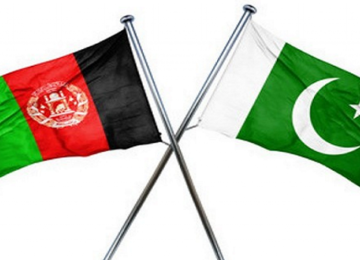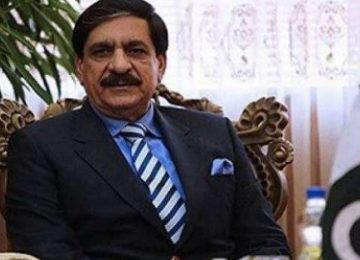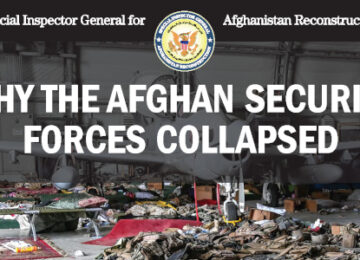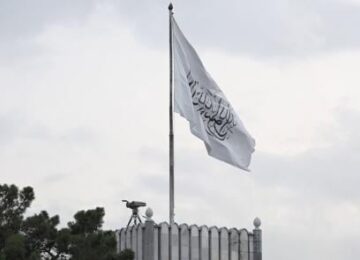Pak-US ties, in recent days, are witnessing a constant downward turn. Therefore, it was no surprise that a senior US official’s call for a “new relationship” between Washington and Islamabad . However, such calls have done little to mend ties between former, and to some extent current, allies on Global War on Terror in Afghanistan due to Washington’s criticism of Pakistan’s counter-terrorism efforts.
Lisa Curtis – senior director for south and central Asia at the National Security Council – on her visit repeated US allegations about militant sanctuaries and shortcomings in Pakistani checks on terrorist financing. Curtis, though, called for a “new relationship” with Islamabad. However, little can be predicted about the shape of this ‘new’ relationship between Pakistan and USA.
A push by the Trump administration to place Pakistan on the list of the countries failing to prevent terrorism financing has widened the divide between the two nations. The public comments by Curtis about alleged deficiencies in Pakistan’s counter-terrorism efforts contrasted with testimony by CENTCOM Commander Gen. Joseph Votel at a hearing of the US House of Representatives in Washington on Tuesday.
Votel had a more positive view of Pakistan’s efforts against the militants. “We are now beginning to see very positive indicators … that they are moving in the right direction,” he told the Congressional committee on Tuesday. Although he failed to detail those actions, his comments showed that the two militaries continued to cooperate on the ground despite the freeze.
A major US concern is that the Haqqani network, the fiercest faction of the Afghan Taliban, is continuing to operate from its base along the Pakistani-Afghan border. The group is blamed for carrying out most of the terrorist attacks in Kabul and other Afghan cities.
There has been growing pressure on Pakistan to act against the insurgent group. Washington has suspended all military assistance to Islamabad. Although Pakistani authorities reject the allegations, there have been signs that the military has started taking action against militant sanctuaries in the tribal region. Perhaps, that is what Gen. Votel has referred to in his testimony.
However, the deepening Afghan crisis and rise in the number of insurgent attacks in the war-torn country remain a serious source of tension between Washington and Islamabad. Both the US and the Kabul administration accuse Islamabad of inaction against insurgents using Pakistani bases to mount cross-border terrorist attacks. There has been a marked escalation in the fighting in Afghanistan with the Taliban launching a spring offensive.
There is no indication of the Taliban losing ground despite the massive escalation in the US aerial bombings and drone strikes. President Trump’s decision to deploy additional troops to Afghanistan has failed to even contain the Taliban offensive. As the divide between the US and Pakistan over terrorist financing widens, hope for a ‘new relationship’ between the feuding allies comes from a surprising source — a Taliban peace offer.
Although the Trump administration has repeatedly declared that US troops would not stay in Afghanistan forever, there is no clear strategy to end to the longest military campaign the US has ever waged. A major worry for Islamabad is that rising instability in Afghanistan could worsen the country’s internal security. Pakistan has long insisted that the use of a military option alone would not deliver peace and that a negotiated political settlement with the Taliban is the only way out of the Afghan crisis.
Afghan President Ashraf Ghani has again urged Taliban insurgents to come to the negotiating table. The latest Afghan offer for talks came during the second round of the Kabul peace process this week. The talks were attended by 18 nations, including Pakistan and India. In an unprecedented move President Ghani has also offered the Taliban to open its office in Kabul. It indicates a big shift from Kabul earlier position. Recently the Kabul government has asked the Qatar government to close down the Taliban office in Doha.
But in the absence of a clear roadmap, there is little hope of any major breakthrough in the stalemate. There is still huge ambiguity about the conditions for any peace dialogue.
While the Taliban are willing to talk to the US administration, there is no indication that the insurgents would be willing to accept Ghani’s offer. Last month, the Taliban released an open letter asking the American people to “evaluate the future of American forces in light of the prevailing realities” in Afghanistan.
The lengthy message directly addressing Americans detailed the cost of what it describes as an “illegal war” and called for talks to end the fighting. “If you want peaceful dialogue with the Afghans specifically and with the world generally, then make your president and Pentagon officials understand this reality and compel them to adopt a rational policy toward Afghanistan,” the letter declared.
Taliban’s apparent gesture or offer of peace comes at a strange juncture, especially when violence is still at an all time high in the country. Even though Taliban has been involved in a number of recent attacks, ISIS (or Daesh) has been responsible for a lion’s share of the attacks. Thus, the group not only threatens Afghanistan but also Taliban’s current hold and advances in the country. The Taliban might also have realised that even with its current hold, winning this war might still be an improbable proposition. However, it is yet to be seen how the Trump administration, with its tough posture on the Taliban, will respond to the latest peace talks offering by Taliban.
The author Zahid Hussain is a Journalist and author of The Scorpion’s Tail: the relentless rise of Islamic militant in Pakistan and Frontline Pakistan. He also visited Kabul as part of CRSS initiative Beyond Boundaries, the Pak-Afghan Track 1.5/11 (Dec 14-17, 2017) Twitter: @hidhussain
© Center for Research and Security Studies (CRSS) and Afghan Studies Center (ASC), Islamabad.








